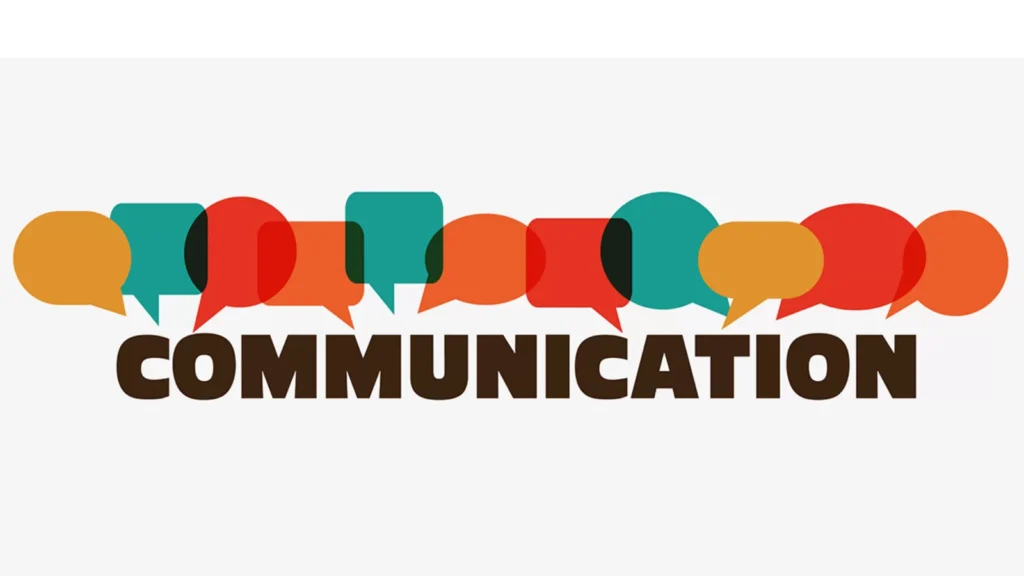Why do Nigerian men fear independent women but secretly admire them? Well, if you are someone who is deeply curious and perceptive, you might have noticed a certain tension that permeates many Nigerian weddings, workplaces, and family gatherings: a blend of admiration intertwined with a subtle, private discomfort.
Consider a scenario where a woman is negotiating her salary, launching a business, or traveling solo – and in the background, a man nods in approval, yet ponders what the future holds. He respects her achievements, but there’s also a quiet fear lurking within him.

Men often commend confident, successful women for their drive and grace – yet, in private conversations, some reveal their reservations about dating or marrying someone who “doesn’t require a man.” This contradiction isn’t exclusive to Nigeria; however, the local culture, economic factors, and family dynamics give it a unique form.
Grasping this ambivalence doesn’t necessitate assigning blame. Instead, it calls for a candid discussion about traditions, societal expectations, and the subtle efforts needed to redefine masculinity and partnership in a contemporary society.
In this article, we will explore the reasons behind the reactions of many Nigerian men, what admiration truly looks like beneath the surface, and how couples can strive for relationships that are equitable, secure, and fulfilling.
Two truths simultaneously
Firstly, numerous Nigerian men genuinely appreciate independent women. Independence represents competence, ambition, and resilience – traits that most individuals seek in a partner. Secondly, this admiration frequently comes with a sense of anxiety.
This anxiety is not always directed at the woman herself; rather, it pertains to identity, societal expectations, and envisioned futures. Let’s delve into the reasons behind this.
The Definition of “Manhood” as Taught
For many years, numerous Nigerian communities have instilled a distinct narrative: men are providers, while women are caregivers. This was not merely a social preference; it was also practical. In agrarian and early-industrial contexts, male labor often directly correlated with family survival. Over generations, these practical roles solidified into cultural norms – a man was expected to be the primary provider and authority figure within the household.
READ ALSO: Why Gen Z Nigerians Are Rejecting Traditional Marriage Customs
When women deviate from this narrative – pursuing careers, earning higher incomes, and making independent decisions – they not only disrupt household economics; they also challenge the narrative many men were raised to believe about how a family “should” operate.
When your community anticipates you to be the “provider,” having an independent partner can feel like a reflection: are you contributing enough? Do you measure up? That pressure can manifest as fear.
Identity and masculinity are social contracts
Masculinity in numerous Nigerian settings transcends the individual; it embodies a social agreement. It gains validation from fathers, peers, community esteem, and frequently through tangible evidence – such as property ownership, bride price payments, leading prayers, and making decisions.

The emergence of an independent woman alters these validation dynamics. Suddenly, certain indicators of “successful manhood” begin to shift, leaving those who once measured themselves by traditional standards feeling unmoored.
Masculinity in various Nigerian contexts is often cloaked in performance. Men receive accolades when they can “provide for” a partner or command respect among their peers. This performative masculinity thrives on visible affirmations – flashy cars, bill payments, and being “in control.”
Independent women subtly challenge this performance. You can observe this when a man reacts defensively to his girlfriend’s public successes or downplays the accolades she receives. He may not harbor resentment towards her; rather, he is responding to what the situation conveys to others regarding his own standing. Within that reaction often lies a mix of admiration and pride – he desires to take pride in her – yet also a pang of comparative anxiety.
Note: change does not equate to loss. For many men, this represents a genuine opportunity for growth – to reconsider their purpose beyond merely being a provider.
The Chaoticness of the Economic Aspect

Nigeria’s economy is unpredictable. Many young individuals – including men – grew up believing that securing a stable job would ensure their safety. However, with rampant underemployment and rising inflation, financial security is increasingly elusive.
When both partners contribute to the household income, the financial strain may lessen; yet, it introduces new dilemmas: who makes the financial choices, how does the balance of power shift, and how does one cope with the stigma if the woman earns a higher salary?
This competition can evoke anxiety. What does it signify to be a man if you cannot fulfill the role that was instilled in you as the most important? For some, this anxiety surfaces as defensiveness or efforts to regain control.
For others, it serves as motivation for self-improvement. The issue lies in the fact that the initial response – insecurity – is frequently misinterpreted as a disdain for independence, when in reality, it is a personal alarm regarding self-worth and identity.
Pride, status, and public perception
Marriage in Nigeria is seldom solely about the union of two individuals; it encompasses families as well. A man might be concerned about how his family will view a partner who earns more than he does, or how in-laws will respond if the traditional power dynamics shift. Does a father-in-law hold respect for a son who isn’t the primary breadwinner? Will relatives engage in gossip?

These societal pressures add complexity to personal emotions. A man may privately admire a self-sufficient partner but dread family repercussions if he embraces a relationship that strays from convention. Once more: it’s not merely the woman’s independence that poses an issue, but the social ramifications that the man foresees.
Some men are apprehensive about what elders or peers might think if their partner earns more, or if family roles are reversed. Pride is not mere arrogance – it represents social capital. A man may secretly appreciate his partner’s achievements, yet be anxious about the social discussions that such success can provoke.
A crucial aspect that often goes unnoticed: when men hesitate to date independent women, they frequently fear their own inadequacies. If a partner is exceptionally accomplished, the pressure seems heightened. Men may worry about not measuring up emotionally, intellectually, or financially.
This anxiety manifests in various forms. Some men retreat; others become controlling (confusing control with security), while some intensify their efforts to prove themselves. The healthier reaction – to feel inspired and to evolve – is indeed possible, but it requires emotional maturity and role models that many men do not possess.
Miscommunication and outdated conflict scripts

Many couples argue not due to genuine incompatibility, but rather because they lack updated scripts for evolving dynamics.
Old conflict methods (such as dominance, silence, and ultimatums) fail when both partners are equals in various aspects. In the absence of healthier communication tools, minor doubts can escalate into significant fears.
Practical Navigation Steps for Men
If you identify these fears within yourself, there’s good news: they can be addressed. Practical steps include:

- Self-reflection. Consider what triggers your insecurity. Is it related to income, social standing, or family expectations? Identify it.
- Communicate: Discuss roles and expectations with your partner. Being vulnerable fosters trust.
- Invest in self-improvement. Enhancing career skills, emotional intelligence, and financial planning can alleviate anxiety.
- Seek role models and therapy. Mentors or a counselor can assist in reshaping your identity away from outdated scripts.
These steps are not signs of weakness – they represent upgrades in maturity.
If you are independent and feel fear or resistance, think about these strategies:
- Lead with empathy. Recognize that a partner’s defensiveness often stems from insecurity, not ill intent.
- Set healthy boundaries. Reject controlling behaviors, but allow room for your partner’s development.
- Invite collaboration. Present decisions as joint endeavors. Allow him to contribute in meaningful ways.
- Model partnership. Fair distribution of household responsibilities and finances establishes new norms.
Your independence can serve as a pathway to shared growth instead of a barrier – but it necessitates patience and collective effort.
How Couples Can Cultivate Healthy, Contemporary Partnerships

Couples who flourish often engage in three key practices consistently:
- Shared vision. They express mutual life aspirations and devise practical strategies to achieve them together.
- Respect for autonomy. Each partner maintains a professional identity and personal space.
- Complementary roles. Rather than adhering to rigid gender roles, responsibilities adapt according to life’s seasons – sometimes he takes the lead, and at other times, she does.
When independence is viewed as a strength for both partners instead of a rivalry, fear naturally diminishes.
The Broader Perspective
This dynamic between fear and admiration is not fixed. Nigerian society is undergoing change. Media, education, global employment, and evolving economies are redefining masculinity and partnership.

This doesn’t eliminate the hard work needed – addressing insecurities, reevaluating family expectations, and discovering new forms of intimacy – but it does suggest a shift towards more adaptable, transparent, and equitable relationships.
To claim “Nigerian men fear independent women” is a simplistic headline; the deeper reality is more nuanced. Many men are apprehensive about the change that independence signifies – the breakdown of a familiar narrative – yet most quietly respect the strength, clarity, and capability of independent women.
The future of relationships hinges not on eliminating those fears, but on how men and women opt to confront them: with empathy, dialogue, and a readiness to redefine what “manhood” and “partnership” truly entail.
When admiration supplants anxiety, independence transforms into a mutual benefit – the cornerstone of a partnership that is sincere, resilient, and equipped for the intricacies of modern Nigerian existence.
FAQs
Q: Do Nigerian men actually prefer housewives?
A: Preferences vary widely. Many men still value traditional homemaking roles; many others prefer equal partnerships; the trend is diverse and generational.
Q: Is a man “less masculine” if his partner earns more?
A: No. Masculinity is socially learned and can evolve. Earning more doesn’t make someone less of a man; it changes how the couple negotiates roles.
Q: How do families react when a woman is the primary earner?
A: Reactions range from pride to skepticism. Clear communication and shared financial planning help smooth transitions.


